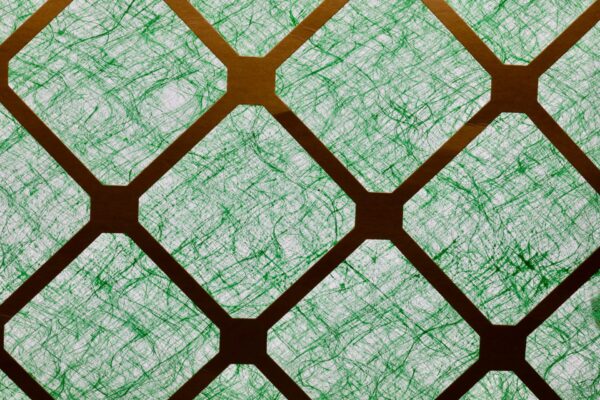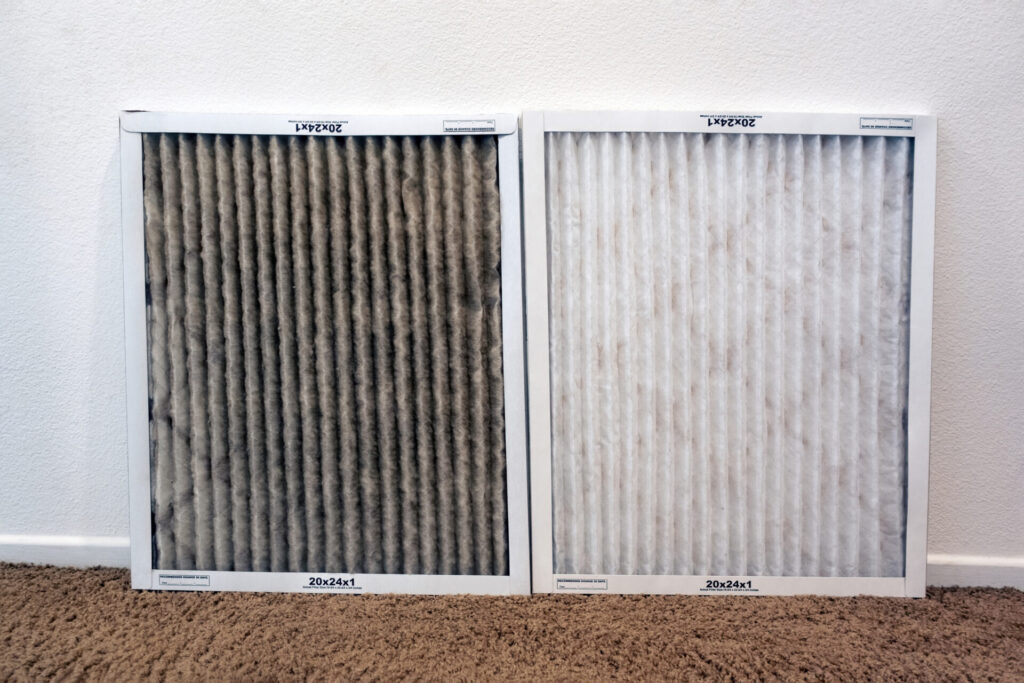
With summer now well underway and temps staying consistently well above 90 during the hottest parts of the day, your home’s air conditioner is probably working harder right now than it does during the rest of the year. Which reminds us: Have you changed or cleaned your air conditioning filter recently?
Your air conditioning filter does more than keep the dust and pollen levels down inside your house; it also helps protect and increase the lifespan of your entire HVAC system. Choosing the right air filter (and changing it regularly, according to schedule) can:
- Improve your family’s health by reducing indoor air contaminants
- Reduce the amount of time you spend cleaning by trapping dust and preventing it from settling around your home
- Protect your HVAC system’s valuable evaporator, ductwork, and blower from the excessive build-up of dust and debris
Frequently replacing or cleaning your filter can make a world of difference. But what kind of air conditioning filter do you need? This month, we’ll examine the different types of filters available, explore their strengths and weaknesses, and help you make the decision that’s right for you and your family.
Why It’s Important to Have the Right Air Conditioning Filter
To be one of the least expensive components of your HVAC system, the filter you choose can have a dramatic impact on both the system’s performance and the quality of the air inside your home. When you pair your air conditioner with the right filter, your system will run smoother and quieter, cost less to operate, and circulate cleaner air than if you use the wrong filter.
The primary considerations you’ll need to address when choosing an air conditioning filter are:
- Filter type: Is a disposable filter right for you? Do you prefer to use a permanent, washable filter instead?
- Filter efficiency: How much filtration do you require? Do you need to trap the largest dust particles, or do you need fine filtration to remove more contaminants?
- HVAC performance: Can your air conditioner’s blower motor handle moving air through your selected filter?
- Cost: Are you willing to spend the money for the highest levels of filtration, or do you need to economize and accept a lower filter efficiency?
The other consideration you’ll need to make is filter size. While most types of filters are available in a wide variety of sizes to fit any HVAC system, you’ll need to ensure that your chosen type is available in the exact size required by your manufacturer.

Disposable vs. Washable Air Conditioning Filters
This choice should be one of the first ones you make when choosing an air conditioning filter. All HVAC filters can be broken down into two categories: disposable and washable.
Disposable filters are just what they sound like: when they’re dirty and ready for replacement, you simply remove them from the air return and throw them in the trash. New filters are readily available at home improvement stores, hardware stores, big-box discount retailers, and even some grocery stores and drug stores. They can also be purchased online.
Disposable filters have the advantage of convenience. Replacing the filter only takes a few seconds, and you can get back to enjoying your air-conditioned home. Disposable filters are also usually available with higher efficiency ratings than washable filters, so they can pull more dust and pollution out of your home’s air.
Disposable filters usually need to be replaced every three months during periods of low HVAC use, or every month during periods of heavy use, or if you have allergy or asthma sufferers in your family.
Washable filters, on the other hand, last for years before they need to be replaced. Instead, they should be removed and washed regularly. Usually, this doesn’t involve much more than taking them outside and giving them a thorough rinsing with a garden hose.
Washable filters have the advantage of long-term savings. Instead of buying a new replacement filter every month, you’ll only need to buy a new filter once every few years, and the least expensive washable filters cost about the same as the most costly disposables.
The other main advantage to washable filters is that they don’t go into the trash, so they reduce the amount of solid waste your home generates and sends to landfills or recycling centers.
Air Conditioning Filter Efficiency
The Environmental Protection Agency usually assigns air conditioning filters a score describing the level of filtration each provides. This Minimum Efficiency Reporting Value (MERV) is higher for filters that trap smaller particles. In general, you should find a filter with a MERV of at least six, but filters with ratings of up to 13 are available if you want even better filtration.
Disposable filters usually come in three types, each generally having a higher MERV rating than the previous type:
Fiberglass Filters
These are the common green mesh-in-a-cardboard-frame filters that are available for less than $10 each from your local hardware store. They provide very limited filtration, only removing the largest dust particles from the air.
Pleated Media Filters
Pleated media filters usually have a lightweight wire mesh in front of a pleated material that looks like paper or fabric. These filters trap much smaller particles; some can even trap the tiny particles in tobacco smoke and some large bacteria. These filters are typically in the middle of the price range.
Disposable Electrostatic Filters
These are usually the most expensive air conditioning filters and resemble their less-costly pleated media cousins. What electrostatic filters bring to the table is that each fiber of the filter medium carries a small electric charge. This charge actively attracts dust and pollen particles, allowing these filters to do the best possible job of removing contaminants from your home’s air.
Washable Filter Types
Nearly all washable filters are electrostatic, but most have slightly lower MERVs than the highest-efficiency disposable filters.
Air Conditioning Filter Impact on HVAC Performance
If cost is not a driving consideration, you may be tempted to buy the filter with the highest MERV rating you can find. Hang on, though, there’s another thing to consider:
All other things being equal, an air filter with a higher MERV will lead to lower airflow and slightly higher energy costs than one with a lower MERV. It all comes down to flow rate. Filters with a higher MERV have smaller holes for air to pass through. That reduces overall airflow and forces your air conditioner’s blower to work harder to maintain air circulation in your home. This higher workload on your blower leads to two side effects: higher energy bills and reduced longevity for your blower motor.
That being said, if people in your home suffer from allergies or asthma, if you live in an area with large amounts of air pollution, or if you frequently leave your doors or windows open, the added comfort provided by a high-efficiency filter may well be worth the minor increase in your electrical bill and slightly higher wear on your air conditioner’s blower.
The Team at Pruett Air Conditioning Is Your Source for Air Filter Knowledge!
When it’s time to choose a new air filter, we can help. Our team knows air quality and HVAC systems backward and forward, and we’re ready to answer your questions about air conditioning filters. Give us a call at 478-953-4986 and breathe easier!
Pruett Air Conditioning has offices in Warner Robins and Eastman, GA, so no matter where in Middle Georgia you’re located, Pruett is your local HVAC company.
- Bonaire, GA
- Byron, GA
- Centerville, GA
- Cochran, GA
- Dublin, GA
- Eastman, GA
- Fort Valley, GA
- Kathleen, GA
- Macon, GA
- McRae, GA
- Perry, GA
- Warner Robins, GA

